Sustainability is one of the most important issues that the world faces today. As our use of plastics increases to astronomical amounts, we are observing how our harmful use of plastics can contaminate not just our environment, but every single microbial being that inhabits it.
Frankly, grocery stores are no exception to this trend. Your average grocery store uses truckloads of water and energy as it transports food items across the country. This is in addition to packaging for products that can take decades to decompose in landfills. And that’s not to mention the large-scale greenhouse gas emissions associated with industrial agriculture, food production, and shipping. 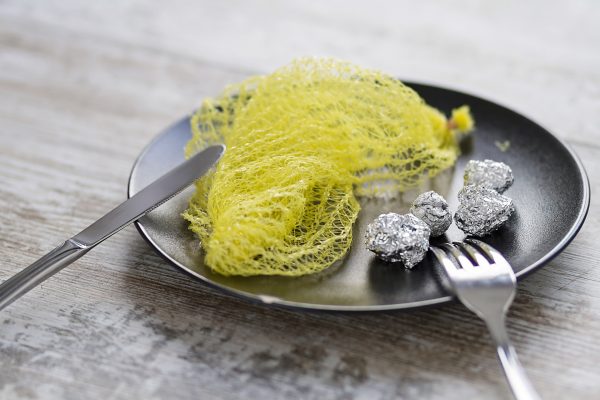
Unfortunately, there are still gaps between a consumer’s desire for sustainable food products, and the actual reality of sustainable options in grocery shops, a survey from Retail Insight found.
If you care about sustainability in general, or if you’re looking for ways, as an independent consumer, to make your grocery shopping more environmentally friendly, read on to learn more about how you can incorporate more sustainability practices into weekly grocery shopping!
Buy items with the least packaging to increase sustainability
The saying, “less is more,” sure works when it comes to plastics. The number one thing you can do to support sustainability in grocery shopping is to buy items with as little packaging as possible. This does not mean that we should forgo buying items because they come prepackaged. Rather, we need to aim for a packaging gradient where we buy items with less and less packaging until finally, we only purchase products that come without unnecessary or non-recyclable plastics.
Here are some local Halifax businesses that have labelled sustainable packaging as their utmost goal you should consider:
The Tare Shop is Nova Scotia’s first local package-free store and café. They fulfill all your needs, from affordable package-free groceries, to package-free items for your home.
Momma Bears Boutique is also great for eco-friendly home and personal care products for the whole family. Additionally, Greenii makes lovely eco-friendly paper bags which saves trees one bag at a time.
Support sustainability by supporting local markets
Whether you are going shopping for food or general supplies, or even flowers, try frequenting small local businesses. These businesses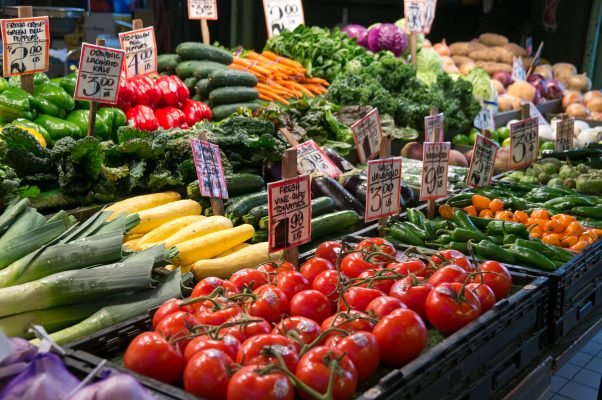 often source their items from other small businesses. This can mean that they produce a smaller carbon footprint than those big box stores. A big box store will almost always outsource from far away. This means they usually benefit from cheap and unethical labour in other countries. They will also use a lot of fuel during shipment and end up using huge warehouse spaces at a high environmental cost
often source their items from other small businesses. This can mean that they produce a smaller carbon footprint than those big box stores. A big box store will almost always outsource from far away. This means they usually benefit from cheap and unethical labour in other countries. They will also use a lot of fuel during shipment and end up using huge warehouse spaces at a high environmental cost
With farmers markets, you can rest assured that the items you are purchasing often come from ethically sourced means with sustainability at the forefront. Even better, you get to support local farmers who would be happy to form more solid and friendly relationships with their communities. If you want to feel good about your purchasing habits, shop at local markets and avoid chain retail where possible.
The Farmers Markets of Nova Scotia website is a great place to find local markets and farmers who use more sustainable techniques to harvest food, and raise livestock. This is a much more eco-friendly way to obtain your groceries!
Buy fresh produce instead of canned foods
If you can choose fresh, always choose fresh. Fresh fruits and vegetables are tastier and better for you, while canned foods often rely on GMOs, which are arguably not great for your health, or the environment. 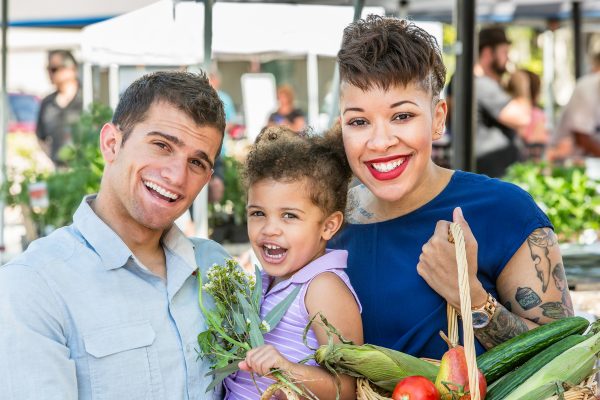
Buying locally grown produce is also a great way to support small local businesses, which develop goals that align with your own sustainability values. If there’s no locally-owned grocery store near you, visit a farmers market to stock up on fresh and local produce. Remember, canned goods usually have high sodium content, so best to avoid them for that reason too!
Square Roots provides solutions to better distribute fresh and local produce. They even partner with local restaurants and breweries to promote their sustainability values.
Pay attention to what you are buying
In our purchasing power as consumers, we have a major role to play in creating a sustainable future. We can do our part by being smart about how we spend our money. Where possible, avoid products from companies with a history of unsustainable development goals or actions. Many of these companies will advertise that they want to become more sustainable, but will then unethically charge more for products labeled sustainable. It’s important to be critical of the role multi-million dollar companies play in negative environmental impacts. The best you can do is look for products that contain recycled and recyclable materials. Choose items that are produced locally where you live whenever possible—it’s good for your local economy, and it’s better for sustainable development on a global scale.
This can mean making smaller switches in your lifestyle, such as cutting down on plastic by spending money on glass jars or cotton-produced bags. Buying in bulk can also promote sustainability, and it’s cheaper too. By investing in products that package more food, you can reduce the amount of waste you produce each week.
Reusable bags for sustainability
Although the three Rs are all very important, some may be more beneficial to your carbon footprint than others. Reusable materials contribute more to sustainability than recyclable materials. Recycling can still produce waste. A large amount of energy is needed to transport and process these materials. And even then, recycled materials can still become waste. 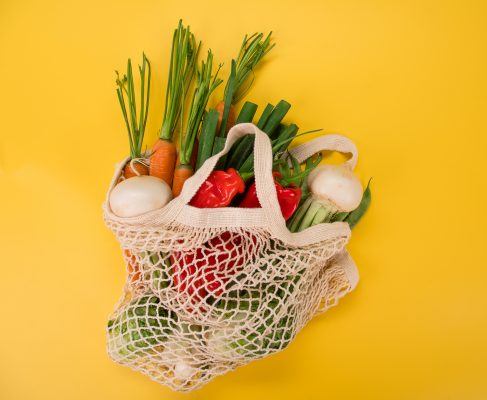
Try to avoid using the plastic bags that grocery stores often provide. And, when that’s not possible, reuse the plastic bags for as long as you can. It’s always better to reuse plastics as much as you can, before recycling them, to reduce waste.
More importantly, try investing in a few reusable bags. Did you know that grocery bags made from recycled plastic are so plentiful that they have their own section at many retailers? Whole Foods even has a whole section dedicated to selling bamboo bags. Bags made of corn-based resins are sturdy, strong and lightweight—they weigh 1.5 ounces less than similar plastic options—and they’re even machine washable. The bonus? They cost a fraction of what most plastic bags. That said, whenever you can, buy reusables!
Buy or donate food that would otherwise go to waste
You can shop at your local farmer’s markets. But even that small step may not be enough for you—or may not always be an option. If you are in the grocery store, check out their “Enjoy Tonight” specials on soon-to-be-expired food. Better yet, got some perfectly good unopened non-perishables that your family suddenly doesn’t like anymore? Donate them to your local food bank—you’ll often find donation boxes at your local grocers. Feel free, if it’s in your budget, to buy some extra items that you can donate too!
Also, keep on the look-out for new small businesses working in this space to support. A great Nova Scotia example is Station Food Company in Windsor. You can read all about how they’re helping to reduce plenty of food waste by selling perfectly delicious (but not so pretty) potatoes, here!
In conclusion, every little step towards sustainability makes a big impact
So, not only can sustainability create a better environment for all of us to live in, but it can also help us foster caring communities.
Small local businesses work hard to survive and thrive while following principles of sustainability and going green. Keep on supporting those principles by being patrons of these shops. They depend on you. As do our local communities—and the planet!
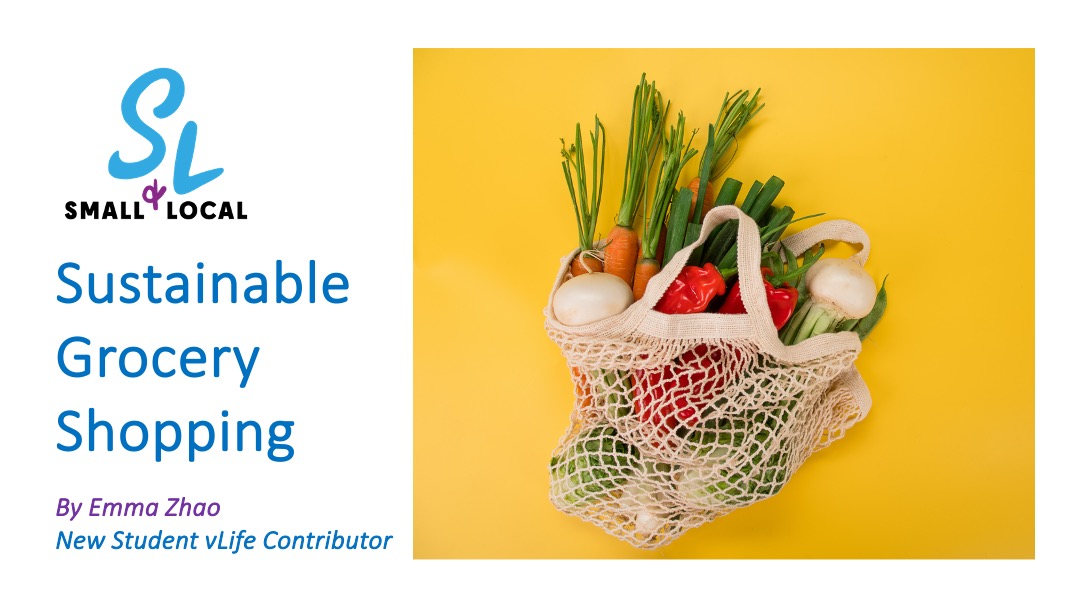
This is a lovely article Emma! I didn’t just read because of the mention, but due to the nature of the article:) Lovely! Simple! Effective! Thank you for loving our Mother Earth!
Great article! I am using it in my research for the upcoming show I am curating called ‘Trashed: Art as Diversion’ at Cuts and Paste Gallery in Halifax, NS. I Invite you to come check it out when it opens.